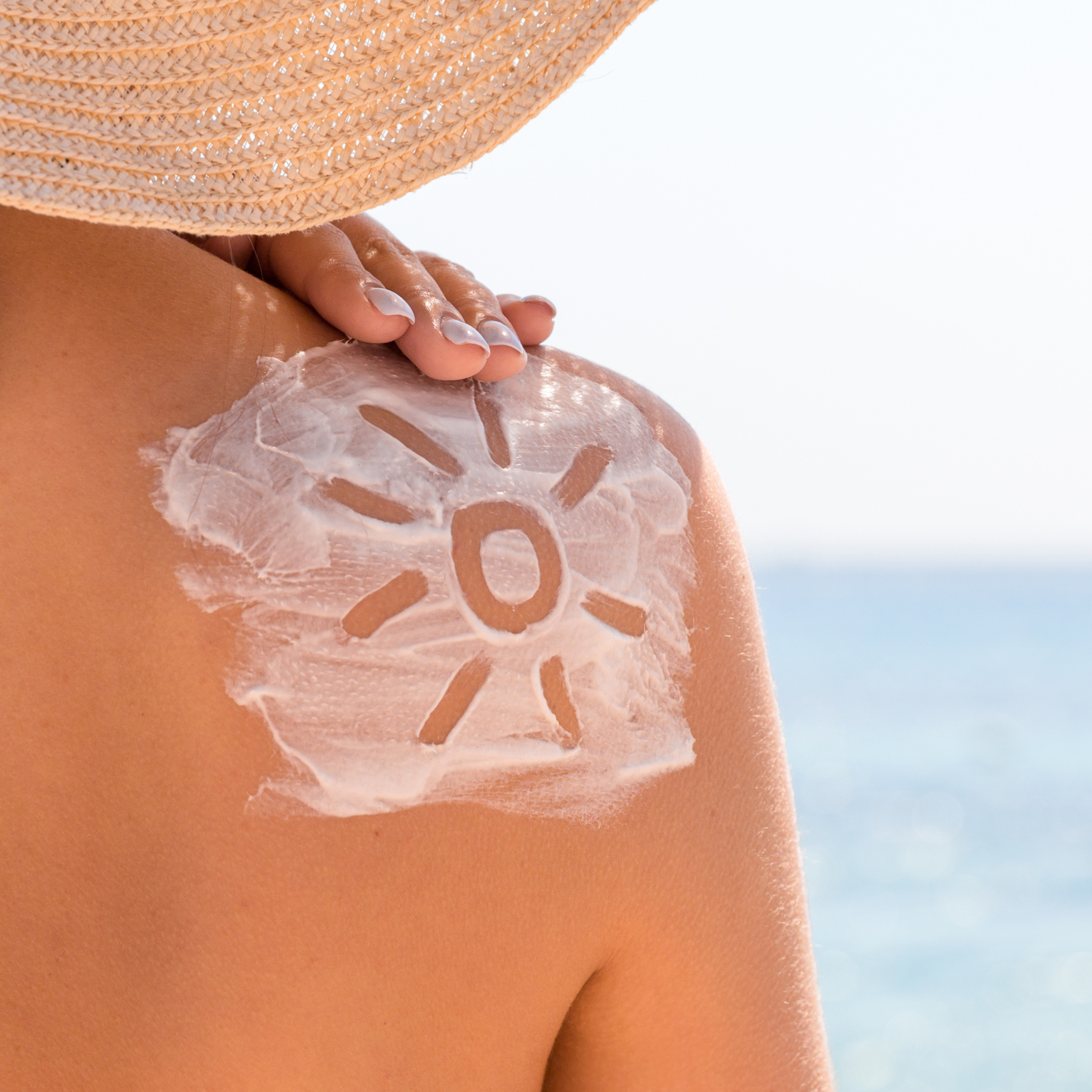While many people only start worrying about sun protection and skin health when the temperatures rise and the summer months are approaching or here now, by that point, the damage to your skin may already be done.
The summer months are a time when we enjoy outdoor adventures and beach vacations. We stand under the sun for hours, cooking away with sweat dripping down our faces in hopes of achieving the ultimate tan. But how concerned are you about your skin protection and skin health?
According to the Skin Cancer Foundation, 1 in 5 Americans will develop skin cancer by the age of 70. They also shockingly mentioned that more than two people die of skin cancer every hour in the United States. Those statistics are pretty scary!
Getting outside and taking in natural vitamin D from the sun is a great thing, but you absolutely need to focus on skin protection or risk damaging your skin health.
In this guide, we will dive deeper into the importance of sun protection, tips for sun protection and skin protection, common skin issues, and what you can do to improve and maintain your skin health.
Disclaimer: This article is for informational purposes only and is not meant to treat or diagnose any skin condition. It is recommended that you speak with a doctor or dermatologist and follow their guidelines to help protect your skin and provide adequate sun protection.
The Importance of Sun Protection for Skin Health
Your skin is the body’s largest organ, yet people neglect it as if skin health doesn’t apply to them. The elements of the outdoors can destroy your skin health and cause premature aging, skin damage, and even skin cancer.
Getting adequate sunlight may be great for mood enhancement, vitamin D production, and feeling more rejuvenated, but it’s essential that you do so responsibly and with sun protection.
Harmful UV rays from the sun can penetrate the skin, leading to sunburns, wrinkles, fine lines, leathery skin, dark spots, and other skin issues.
It’s for this reason you need to add sun protection into your daily routine, whether it’s the middle of the summer or even the cooler months, the sun’s rays don’t care what season it is where you live – they will continue to hit your skin and potentially cause issues with your skin health.
Adding an SPF 30 to your daily skincare routine is vital to protect your skin all year long and prevent some of the damaging effects of the sun’s UV exposure. You can think of this in the same manner as applying moisturizer to your face and skin in the morning.
Tips for Preventative Sun Protection
To help support skin health and improve sun protection, utilize some of the helpful tips we have laid out below, regardless of whether you’re inside or outside most of the day:
1. Use sunscreen
Invest in a broad-spectrum sunscreen with SPF 30 or higher. If you’re prone to burning, a higher SPF sun protection would be ideal. Apply the sunscreen generously to all exposed areas of your skin, including the face, neck, arms, and legs. Reapply every two hours, especially if you’re swimming or sweating profusely.
2. Cover up your exposed skin
Wear lightweight, long-sleeved clothing, hats, and sunglasses to shield yourself from direct sunlight. Choose tightly woven fabrics that offer better protection against UV rays, or consider purchasing specific apparel that has SPF sun protection built into the garments.
3. Seek shade
Limit your time in the sun, especially during peak hours between 10am and 4pm, to help protect your skin health. When outdoors, look for shaded areas and consider standing or sitting under umbrellas, trees, or canopies that can help block out some of the UV rays.
4. Don’t forget about after-sun care
Even with the best precautions, sunburns can happen to us all. Soothe sun-kissed skin with aloe vera gel, moisturizers containing hyaluronic acid, or cooling compresses. Hydrate your body by drinking plenty of water to replenish lost fluids. Hydration is a crucial element in not only skin health but overall health as well.
5. Consume a healthy diet
Incorporate foods rich in antioxidants, vitamins, and omega-3 fatty acids into your diet to support skin health. These nutrients can help fortify your skin’s natural defense against UV damage and promote overall skin health.
Common Skin Health Issues and Skin Protection Solutions
Below are some of the most common skin health issues that many people face daily and how you can properly address them:
1. Sunburn
If you find yourself with a sunburn after a day outdoors (even if you’ve been using sun protection), it is best to soothe your skin with cool compresses, aloe vera gel, or over-the-counter hydrocortisone cream. Avoid further sun exposure until the skin heals completely. If your sunburn is severe, speak with your doctor or seek medical attention.
2. Heat rash
To alleviate heat rash and support your skin health, keep the affected area cool and dry. Wear loose-fitting clothing made of breathable fabrics like cotton. Consider applying calamine lotion or hydrocortisone cream which can provide some relief from itching and discomfort.
3. Acne
Sweat and humidity aren’t a good combination when it comes to skin health and can exacerbate acne breakouts during the summer months. Maintain a consistent skincare routine with gentle cleansers, non-comedogenic moisturizers, and acne-fighting ingredients like salicylic acid or benzoyl peroxide.
Depending on the sensitivity of your skin, you may need to try various sun protection products to ensure they (themselves) don’t cause you acne breakouts.
Skin Health Starts from the Inside Out
Beautiful skin isn’t just about external care through sun protection lotions, moisturizers, etc. – it also stems from what you put in your body. What you consume on a daily basis plays a significant role in overall skin health as well as other external aspects, such as the health of your hair and nails.
Below are some things you need to ensure you’re putting in your body daily to support skin health:
1. Healthy fats
Beware of poor-quality oils like corn, canola, sunflower, safflower, and soybean in your diet, as they can increase the likelihood of sunburn and skin damage. Instead, look for healthier alternatives like avocado, olive, and flaxseed. These oils are rich in essential fatty acids, which help maintain skin integrity and resilience against UV radiation.
2. Antioxidant-rich foods
Load up on fruits and vegetables bursting with antioxidants like vitamin C, vitamin E, and beta-carotene. These nutrients combat free radicals generated by UV exposure, reducing oxidative stress and inflammation in the skin.
3. Hydration
Keep your skin hydrated from the inside out by drinking plenty of water throughout the day. Hydration is essential for maintaining skin elasticity, preventing dryness, and flushing out toxins that can compromise skin health.
4. Supplementation
While the food you consume and the amount of water you drink each day can help improve skin health, sometimes it’s simply not enough. That’s where supplements can come in to fill in any gaps.
For instance, Vitamyna’s Looking Good formula is a daily supplement pack that is specifically formulated to support nail, hair, and skin health. The precise formula includes five crucial supplements: Biotin, Vitamin D3, Resveratrol, Hyaluronic Acid, and Super Omega-3. The powerful combination of key supplements helps enhance cellular well-being, healthy aging, and can promote smooth, hydrated skin.
Taking care of your skin every day, especially during the summer, is not only about vanity but also about safeguarding your skin health.
By following the tips for sun protection in this guide, nurturing your skin from the inside out, and addressing common skin issues that arise from UV exposure, you can enjoy the sun while keeping your skin radiant and healthy.
Remember, beauty truly does radiate from within, and improving your skin health is the ultimate reflection of holistic well-being.



